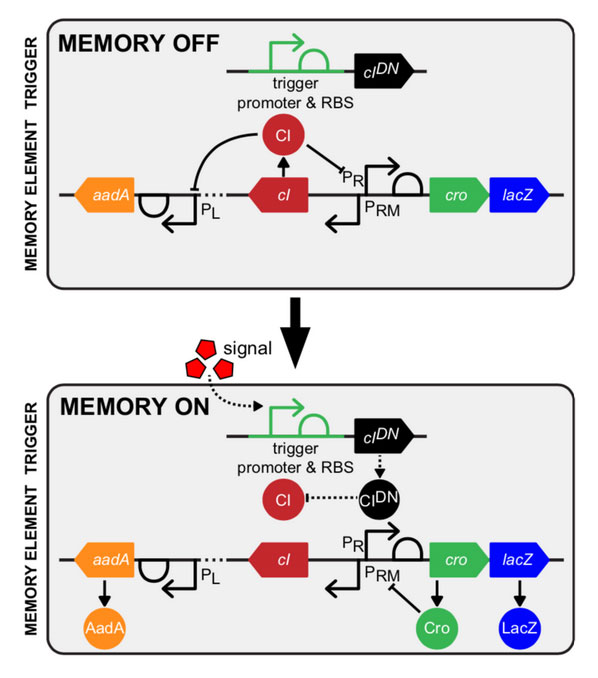Synthetic Gene Circuits Enable Systems-Level Biosensor Trigger Discovery at the Host-Microbe Interface
By Dr. Katie E Golden, MD

The last decade of microbiome research has revolutionized our understanding of inflammatory-based diseases and opened the door for novel therapeutics in chronic conditions that have evaded traditional treatment. Intestinal disease (such as Inflammatory Bowel Disease, IBD) has been a natural focus of this research given the intimate relationship between gut microbes and host immunity. The challenge, however, of studying an innately inaccessible environment has been a large barrier to understanding the host-microbe relationship that underlies IBD pathophysiology.
Bioengineered microbes are an exciting field of research that show potential for both diagnostic and therapeutic solutions in gastrointestinal disease. Synthetic microbial strains can record biological and environmental conditions in the gut, which can then be retrieved after transit. They have potential to be engineered to sense disease states (such as inflammation, bleeding, or infection), and subsequently induce transcription of therapeutic proteins for in vivo treatment. In order to develop disease-responsive circuits, however, scientists first need to identify the bacterial systems that can be used as the sensors. In a recently published study, investigators address this current obstacle and describe a synthetic gene circuit that has been designed to discover new biosensor triggers that play a role in host-microbiome interactions.1
The authors describe how they improved upon their previous model of a bacterial memory circuit, which records environmental stimuli when it activates a transcriptional trigger. After transit through the gut, the bacteria’s ‘memory’ can be retrieved via reporter gene expression. In their newest publication, they show how the memory circuit was adapted to detect hundreds of potential memory triggers to identify new biosensors that can be used in future synthetic models. They furthermore studied these synthetic microbes in both control and inflammatory states in mice, to identify specific triggers that respond differently during disease. Their exciting work significantly accelerates the potential for prototyping engineered species, developing complex biosensors, and applying these models across multiple species and pathophysiologic conditions.
1. Naydich AD, Nangle SN, Bues JJ, Trivedi D, Nissar N, Inniss MC, Niederhuber MJ, Way JC, Silver PA, Riglar DT. 2019. Synthetic gene circuits enable systems-level biosensor trigger discovery at the host-microbe interface. mSystems 4:e00125-19.

